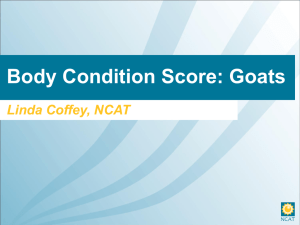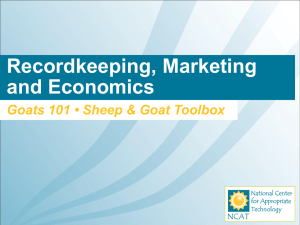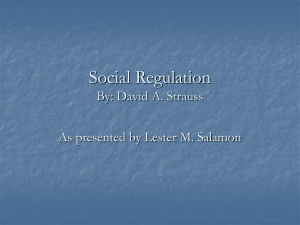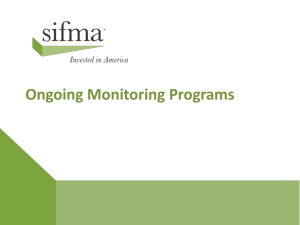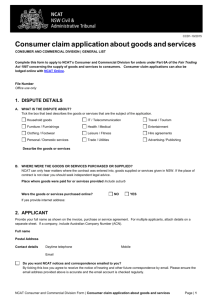Physics 405 - North Carolina Agricultural and Technical State
advertisement
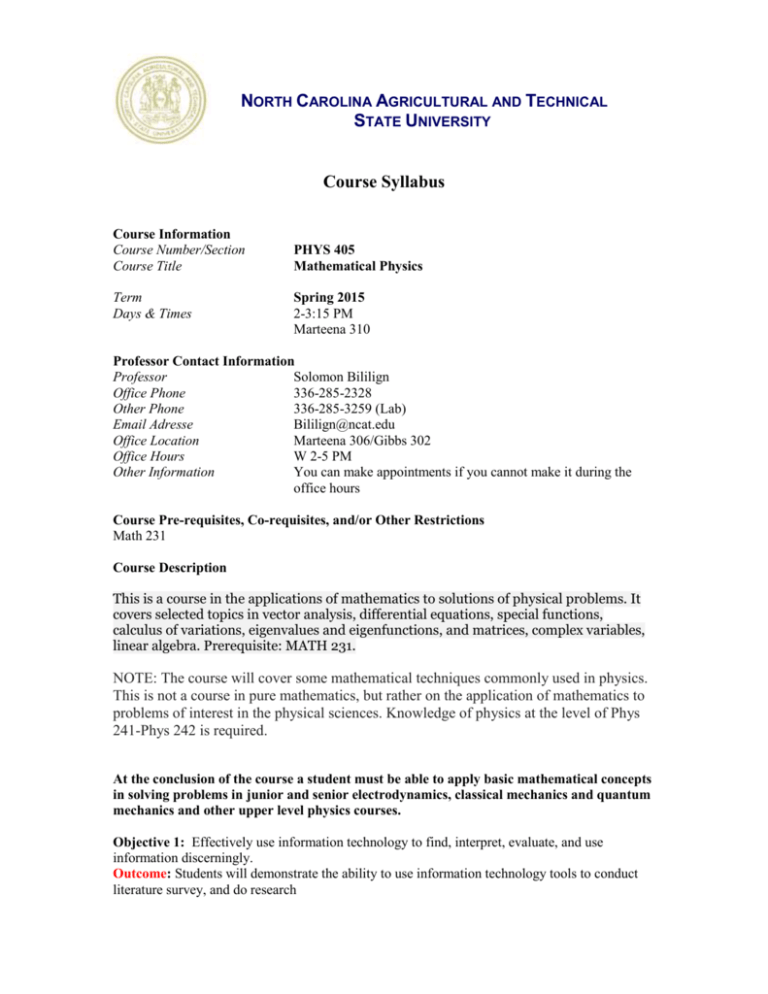
NORTH CAROLINA AGRICULTURAL AND TECHNICAL STATE UNIVERSITY Course Syllabus Course Information Course Number/Section Course Title Term Days & Times PHYS 405 Mathematical Physics Spring 2015 2-3:15 PM Marteena 310 Professor Contact Information Professor Solomon Bililign Office Phone 336-285-2328 Other Phone 336-285-3259 (Lab) Email Adresse Bililign@ncat.edu Office Location Marteena 306/Gibbs 302 Office Hours W 2-5 PM Other Information You can make appointments if you cannot make it during the office hours Course Pre-requisites, Co-requisites, and/or Other Restrictions Math 231 Course Description This is a course in the applications of mathematics to solutions of physical problems. It covers selected topics in vector analysis, differential equations, special functions, calculus of variations, eigenvalues and eigenfunctions, and matrices, complex variables, linear algebra. Prerequisite: MATH 231. NOTE: The course will cover some mathematical techniques commonly used in physics. This is not a course in pure mathematics, but rather on the application of mathematics to problems of interest in the physical sciences. Knowledge of physics at the level of Phys 241-Phys 242 is required. At the conclusion of the course a student must be able to apply basic mathematical concepts in solving problems in junior and senior electrodynamics, classical mechanics and quantum mechanics and other upper level physics courses. Objective 1: Effectively use information technology to find, interpret, evaluate, and use information discerningly. Outcome: Students will demonstrate the ability to use information technology tools to conduct literature survey, and do research 2 Objective 3: Effectively employs critical thinking skills in written and oral communication. Outcome: Students will demonstrate the ability to employ critical thinking in solving problems which are very complicated and mathematically challenging Objective 4: Effectively relate ideas and concepts, as well as modes of inquiry, across disciplines Outcome: Students will demonstrate the ability to relate ideas and concepts from physics to chemistry, atmospheric sciences, geosciences and materials science and engineering Objective 5 : Use analytical thinking skills to evaluate information critically. Outcome: Students will demonstrate the ability to use analytical thinking skills to evaluate the content of the course as it applies to real life problems. Objective 6: Apply multiple modes of inquiry, including quantitative and qualitative analysis, to formulate, describe, evaluate, and solve problems Outcome: Students will demonstrate the ability to apply multiple modes of inquiry, including quantitative analysis, to formulate, describe, evaluate, and solve problems. Objective 7: Apply scientific reasoning skills to model natural, physical, social, and aesthetic phenomena using multiple modes of inquiry: Outcome: Students will develop skills to use the different mathematical techniques to solve problems in physical sciences- physics, chemistry engineering and geosciences. Required Textbooks and Materials Required Texts Mathematical Methods in the Physical Sciences Mary L. Boas, Third Edition Suggested course reference books Schaum's Outlines series on Matrix Algebra, Vector Analysis, Linear Algebra, Complex Variables, Ordinary and Partial Differential Equations Assignments & Academic Calendar Topics, Reading and problems to work on Assignments Lecture Date Topic 1 1/13/15 2 1/15/15 3 1/20/15 4 1/22/15 5 1/27/15 6 1/29/15 2/3/15 Course Syllabus Complex Variables: Complex plane, Complex Algebra Complex Variables: Elementary functions of complex numbers, powers, roots, exponential and trigonometric functions Complex Variables: Logarithms, hyperbolic functions, Applications in mechanics, circuits, optics, Vector Analysis: Vector dot, cross and triple products with applications in mechanics, electrodynamics Vector Analysis: Differentiation of vectors, fields and directional derivative: Gradient; Curl and divergence of a vector: Applications in electrodynamics and mechanics Exam 1- Complex Variables Vector Analysis: Line integrals with Book section (BOAS) Chapter 2, section 1-5 Chapter2, section 8,9,10,11 Chapter 2, sections 12-16 Chapter 3 section 4, Chapter 6 sections 1,2,3 Chapter 6,sections 4,5,6,7 Chapter 6, section 8 Page 2 3 7 2/5/15 8 2/10/15 9 2/17/15 10 2/19/15 11 2/24/15 12 2/26/15 3/10/15 13 3/12/15 14 3/17/15 15 3/19/15 16 3/24/15 17 3/26/15 18 3/31/15 4/2/15 19 4/7/15 20 4/9/15 21 4/14/15 22 4/16/15 23 4/21/15 24 4/23/15 Course Syllabus applications in mechanics and electrodynamics Vector Analysis: Divergence and the divergence theorem with applications in electrodynamics Vector Analysis: Curl and stokes theorem, conservative fields- applications in Mechanics and electrodynamics Linear Algebra: Matrices, Determinants, Cramer’s Rules; matrix operations Linear Algebra: Linear Operators, Linear dependence and linear independenceapplications in quantum mechanics Linear Algebra: Special matrices, Linear Vector Spaces- Applications in quantum mechanics Exam 2- Vector Analysis Linear Algebra: Eigen values and Eigen Vectors, Diagonalization Linear Algebra: Applications of matrix diagonalization in mechanics (moment of inertia, coupled vibrations, quantum mechanics ODE: Separable equations, Linear First order equations, ODE: second order linear equations with constant coefficients equal to zero ODE: second order linear differential equations with constant coefficients and equal to non-zero ODE: Applications in mechanics, quantum mechanics, circuits, electrodynamics Exam 3- Linear Algebra and ODE Partial Differentiation: Total differentials Partial Differentiation: Approximation using differentials, chain rule or differentiating a function, Partial Differentiation: Change of variables Applications in mechanics, quantum mechanics, statistical physics and thermodynamics PDE: Laplace and Poisson equationsapplications: Heat transfer, Electric potentials in Cartesian coordinates PDE: Diffusion or heat flow equation, Schrodinger equation Probability and Statistics: Sample space, probability theorems, Probability and Statistics: Methods of Chapter 6, section 10 Chapter 6, section 11 Chapter 3, sections 13,6 Chapter 3, sections 7,8 Chapter 3, section 9, 10 Chapter 3 section 11 and 12 Chapter 3, section 12 Chapter 8, sections 13 Chapter 8, section 5 Chapter 8, section 6 Chapter 4, section 13 Chapter 4, sections 4 and 5 Chapter 4 section 11 Chapter 13, section 1 and 2 Chapter 13, section 3 Chapter 15, sections13 Chapter 15, sections 4 Page 3 4 25 4/28/15 26 4/30/15 counting, Random variables, Probability and Statistics: Distributions, Binominal, Normal and Gaussians, Poisson Probability and Statistics: Error Analysis Final Exam: Comprehensive and 5 Chapter 15, sections 6,7,8 and 9 Chapter 15, section 10 Grading Policy Homework: Assigned homework problems for each day are listed and collected at the next class following the assignment. You are urged to try to solve the problems before we solve them in class. Homework carries a major weight in the evaluation. Solutions will be provided after the homework is collected. No homework is accepted after the solutions are distributed. Last day to submit home works is 5PM of the Friday of the week they are assigned. You can work collaboratively and discuss homework with your peers; however the material you turn in should be your own work. I will file a report of Academic Integrity Violations for any student who turns in homework that is copied from another source or cheats in any other manner. The student will get a zero for the homework. Quizzes: Daily or once a week, you will have a quiz based on the material to be covered. This quiz could be at the beginning of the class or towards the end. You are expected to read the section for the class before coming to class. Exams: There will be three exams and a final. The exams schedules are announced in the outline Grading: Home works + quizzes Three Exams 10% each Final Exam 50% 30% 20% Grade Scale Course Policies Make-up exams Course Syllabus Page 4 5 Make up exams are given only with valid excuses Extra Credit Attendance of all departmental seminars is a requirement and students will earn extra credit. Late Work No late work is accepted Class Attendance A student is not allowed to miss a class without reasonable excuse and justification. Classroom Citizenship Civility and good conduct is expected. Coming on time and turning off all cell phones, and waiting until the class ends are expected of each student. Enrollment in the class means that you agree to abide by the expectations of North Carolina A&T State University about academic integrity. For specific information refer to your Student Handbook. Also, refer to the most current Undergraduate Bulletin for the academic dishonesty policy. The North Carolina A&T State University’s Academic Honor Code will be enforced. Your responsibilities in the area of honor include, but are not limited to, avoidance of cheating, plagiarism and improper or illegal use of technology. Your presentations, assignments, and quizzes are expected to be your own work. Any questions about these should be directed to the professor. It is permissible to request assistance from a librarian when doing database research as long as the selection and organization of the research for the presentation is in your own work. Technical Support If you experience any problems with your A&T account you may call Aggie Tech Support (formerly Help Desk) at 336.334.7195. Field Trip Policies / Off-Campus Instruction and Course Activities Student Affairs website http://www.ncat.edu/~staffair/; Student Handbook: http://www.ncat.edu/~deanofst/Handbook.htm; Student Travel Procedures and Student Travel Activity Waiver http://businessfinance.ncat.edu/policies%20and%20procedures%20index.htm Off-campus, out-of-state, and foreign instruction and activities are subject to state law and University policies and procedures regarding travel and risk-related activities. Information regarding these rules and regulations may be found at the website address: Student Travel Procedures and Student Travel Activity Waiver http://businessfinance.ncat.edu/policies%20and%20procedures%20index.htm. Additional information is available from the office of Student Affairs, please check the website at http://www.ncat.edu/~staffair/. Below is a description of any travel and/or risk-related activity associated with this course. Other Policies (e.g., copyright guidelines, confidentiality, etc.) Student Handbook: http://www.ncat.edu/~deanofst/Handbook.htm Family Educational Rights and Privacy Act http://www.ncat.edu/~registra/ferpa_info/index.htm Student Conduct & Discipline Course Syllabus Page 5 6 North Carolina A&T State University has rules and regulations that govern student conduct and discipline meant to ensure the orderly and efficient conduct of the educational enterprise. It is the responsibility of each student to be knowledgeable about these rules and regulations. Please consult the undergraduate http://www.ncat.edu/~acdaffrs/Bulletin_2008-2010/2008-2010_Undergraduate_Bulletin.pdf and graduate bulletins: 2008-2010 Graduate Catalog.doc http://www.ncat.edu/~gradsch/cstudents.html and student handbook http://www.ncat.edu/~deanofst/Handbook.htm for detailed information about specific policies such as academic dishonesty, cell phones, change of grade, disability services, disruptive behavior, general class attendance, grade appeal, incomplete grades, make up work, student grievance procedures, withdrawal, etc. Compliance with the Americans with Disabilities Act North Carolina A&T State University is committed to complying with the Americans with Disabilities Act of 1990 and Section 504 of the Rehabilitation Act of 1973 by providing equal access to the programs, services and benefits to qualified students with disabilities. All reasonable efforts will be made to accommodate the needs of students with documented disabilities. If you have a disability that requires an accommodation during the semester, please REGISTER with the Office of Veterans and Disability Service (OVDSS) located on campus in Murphy Hall (334-7765). Make sure that you notify OVDSS of any disability accommodation requests prior to the start of classes or within the first two weeks of classes. These descriptions and timelines are subject to change at the discretion of the Professor. 01.27.09 – Submitted to Faculty Senate by LEW Course Syllabus Page 6
